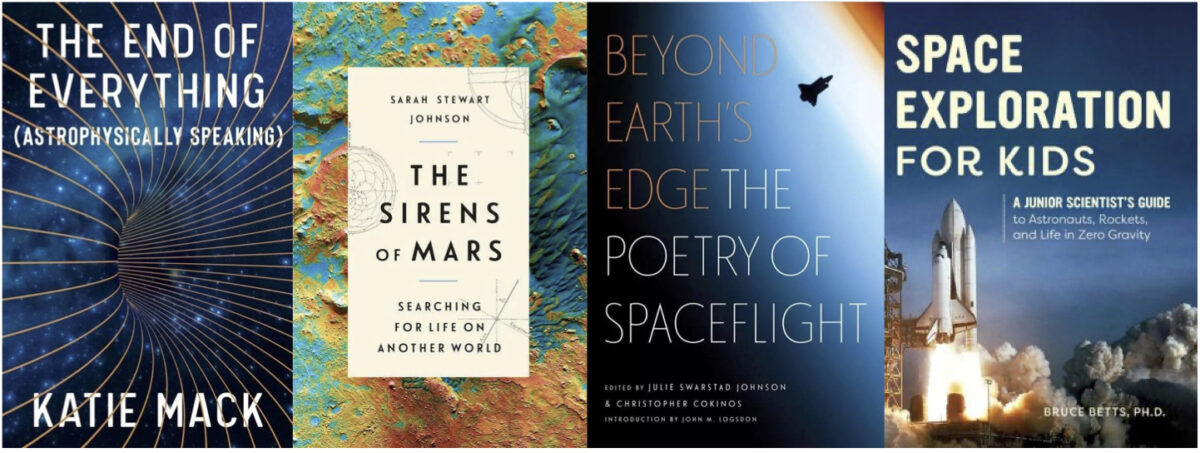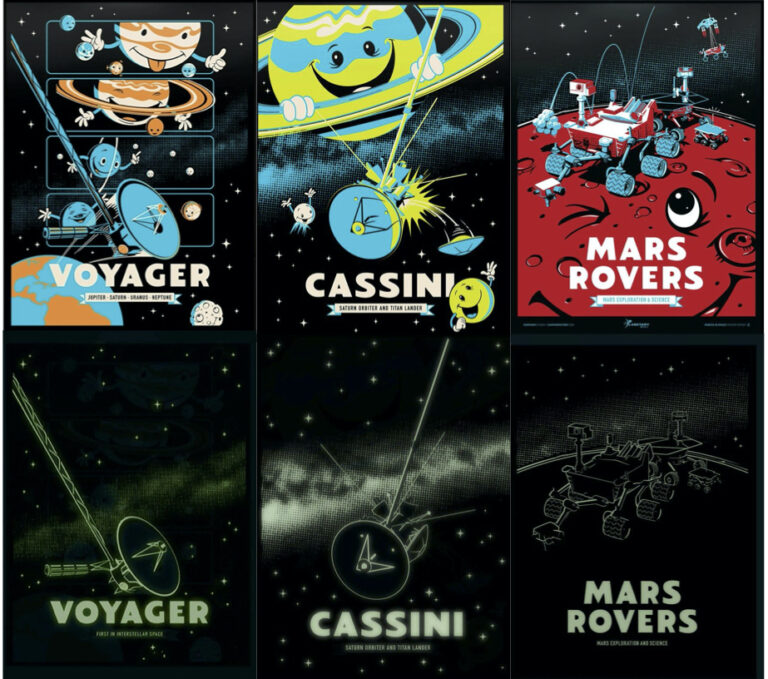Kate Howells • Nov 10, 2020
This Year's Best Space Gifts, According to Our Members
The Planetary Society's 2020 Gift Guide
Searching for a gift for someone who loves space? There’s nobody better to guide you than the people who love space the most! We asked Planetary Society members what they’d want to receive this year, and here’s what they told us.
The Pioneer plaque pin
Artist Duane King created this limited edition brass pin to commemorate the Pioneer plaque. NASA’s Pioneer 10︎︎︎︎︎ spacecraft, launched in 1972 to explore the outer solar system and beyond, carried with it this poetic and ambitious piece of visual communication. The plaque designed by Frank Drake︎︎︎︎︎ and Carl Sagan︎︎︎︎︎ with artwork by Linda Salzman Sagan︎︎︎︎︎ serves as a cosmic greeting card, communicating where, when, and who we are to any advanced extraterrestrials who might encounter it. Anyone who appreciates this cosmic gesture would love this pin, commemorating the vision and adventurous spirit that defines humanity at its best. Ships to the U.S. only.
A telescope… any telescope!
If the person in your life who loves space doesn’t already have their own telescope, it’s probably time to change that. Looking through your own telescope connects you to the cosmos like nothing else. Depending on budget, location, and the kind of objects you’d like to observe, there are several options for which telescope to buy. Luckily, we have a handy guide for choosing the perfect beginner’s telescope, which includes some recommendations for specific models. To complete the gift, share some tips from our beginner’s guide to observing the night sky.

The LEGO International Space Station
There’s nothing like a gift that you can play with right away, and this one is sure to keep whoever receives it busy for quite some time. This 864-piece LEGO model of the International Space Station comes with a dockable Space Shuttle, a satellite that can be deployed, and an astronaut to perform daring spacewalks, so the fun doesn’t have to stop once it’s assembled.
You can’t go wrong with books!
Giving a space lover a book about space is like adding mass to a star: it fuels the fire. Over the course of this year, our podcast and radio show Planetary Radio has highlighted some great books about the cosmos. You can learn more about each book on our show pages:
The End of Everything (Astrophysically Speaking) by Katie Mack
The Sirens of Mars by Sarah Stewart Johnson
If you’re shopping for a youngster, we recommend our own chief scientist Bruce Betts’ most recent children’s book, Space Exploration for Kids: A Junior Scientist’s Guide to Astronauts, Rockets, and Life in Zero Gravity.
Want something full of pretty pictures that will look great on your coffee table? Check out Voyager: Photograph's from Humanity's Greatest Journey for gorgeous images from the Voyager probes' grand tour of the outer planets.
Cosmic comfort
We’re going cozy and comfy with this year’s wearable gift ideas from Svaha. For adults, we love these solar system leggings depicting the worlds in our cosmic neighborhood. For kids, these Moon phase pajamas are extra fun because they glow in the dark.
Planetary pins
This gorgeous set of enamel pins made by Yugen Handmade depicts our solar system in striking shapes and colors. You have the option to buy your loved one their favorite world, or if you’re not sure which world is their fave, you can always buy the whole set!
Fuel for the imagination
Teens, adults, and talented kids will love this spacey coloring book from Creative Haven, featuring 31 full-page illustrations of swirling nebulas, asteroid fields, mysterious planets, solar flares, and much more. With easily torn-out pages, every work of art can double as a poster.
A Pale Blue Dot pin
Can you tell that our members love pins? This special pin commemorates another of the most meaningful and thought-provoking touchpoints of space exploration: the Pale Blue Dot. Although the pin itself is very simple, it could mean a great deal to the wearer if they’re familiar with the iconic image of Earth taken by NASA’s Voyager 1 spacecraft from 6.4 billion kilometers (4 billion miles) away. Carl Sagan famously mused about how fragile our little home planet looks in this image, reminding us to take care of our world. Accordingly, 50% of profits from these pins are donated to climate justice organizations.
Deck the walls
The Planetary Society partnered with Chop Shop to create this series of 3 posters for kids—or playful adults! The posters show NASA’s Voyager spacecraft, Cassini orbiter, and Mars rovers. The screen-printed versions of the posters also glow in the dark, making any bedroom at night feel like the dark, vast expanse of space.
Cuddle up with the Red Planet
If you know someone who loves Mars so much that they just want to give it a big hug, we’ve got the perfect gift for them. Hugg-A-Planet’s plush Mars globe shows the names of craters, valleys, and other landforms, and comes with a Mars fact sheet. The shell has a sewn-in hanging loop, making it as good to display as it is to snuggle up with.
Engrave a name at our headquarters
If you want to choose a gift that will make a lasting impression, there’s no better choice than to buy a custom-inscribed brick with your loved one’s name on it, to be placed in the pavement of The Planetary Society’s headquarters in Pasadena, California. Every time visitors come to take a tour or meet with our CEO Bill Nye, they’ll pass by an enduring commemoration of your loved one’s passion for the exploration of the cosmos.

Solar system style
European shoppers can stock up on planetary gifts from the European Space Agency’s online store, featuring awesome apparel like this Jupiter hoodie, as well as mugs, tote bags, baby clothes, and much more, each adorned with the world of your choice. The only hard part? Resisting the temptation to buy the whole set.
A brighter future for space science and exploration
One gift really never goes out of style: membership in The Planetary Society. The person you’re buying for will officially become a part of the effort to increase discoveries in our solar system and beyond, elevate the search for life outside our planet, and decrease the risk of Earth being hit by an asteroid.
Support our core enterprises
Your support powers our mission to explore worlds, find life, and defend Earth. You make all the difference when you make a gift. Give today!
Donate

 Explore Worlds
Explore Worlds Find Life
Find Life Defend Earth
Defend Earth












